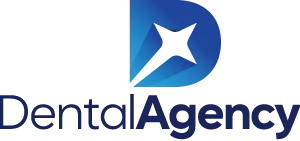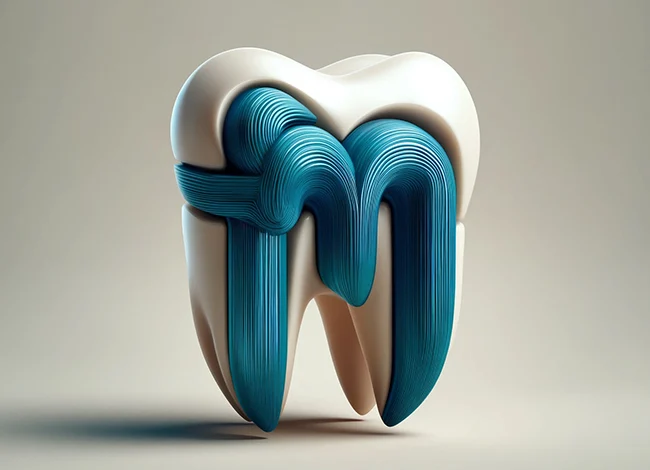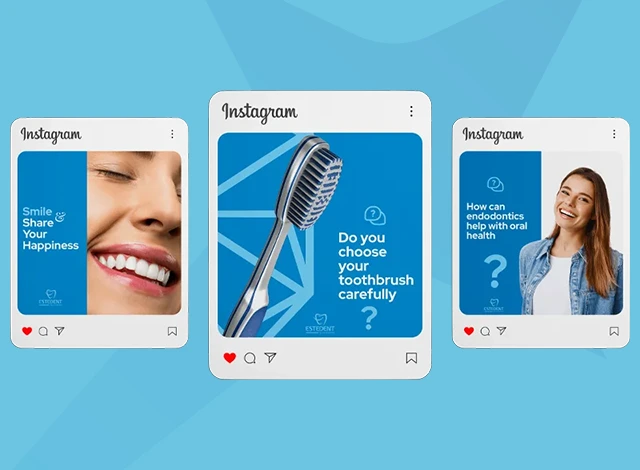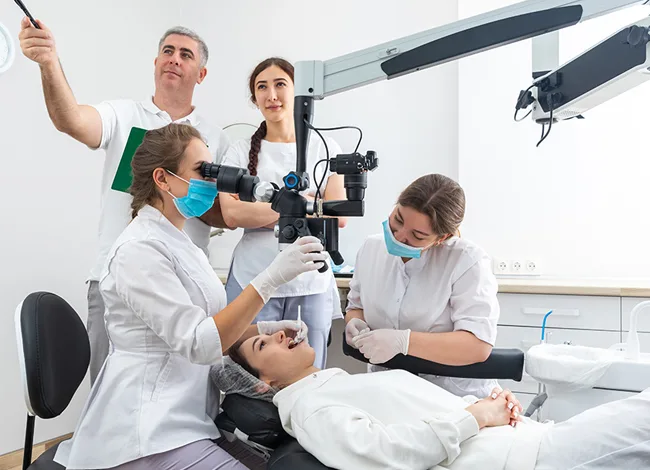Table Of Contents
Google Ads for Dental Clinics
In Europe’s competitive dental industry, using Google Ads (formerly AdWords) can be a highly effective digital marketing strategy to attract more patients and maintain a steady flow of new clients. However, it’s crucial to set up and manage these campaigns properly for the best results.
Why Should Dental Clinics Invest in Google Ads?
Find Ideal Patients: With Google Ads, you can reach potential patients who are specifically looking for the services you offer.
Achieve Quick Results: Create a campaign with Google Ads and start seeing clicks within hours of launching.
Low Risk: There’s no minimum spending requirement with Google Ads; you only pay when potential clients click on your ads, making it possible to start even with a limited budget.
Considering these advantages, you can use Google Ads to promote your local dental clinic and attract more patients.
Step 1: Keyword Research
Building a high-converting Google Ads campaign starts with understanding the needs of your potential patients. Why are they searching for a dentist? Which specific services are you promoting, and what terms are potential patients using?
Begin by using the Google Ads Keyword Planner tool to determine the search volume related to your dental clinic. Enter phrases you think potential patients might use to find a local dentist, and identify the best keywords to target your campaign.
Examples of phrases a patient in Paris might use when looking for family dentistry include:
- Family dentist near me
- Paris family dentist
- Paris dental care
The Google Ads Keyword Planner tool provides similar phrases for your ads. It also offers essential data, such as how frequently patients search for these keywords, the competition level in Google Ads, and the estimated cost per click (CPC) for each keyword.
Using the Keyword Planner:
Ask yourself these questions when deciding whether to include a keyword in your campaign:
What is the search volume for the keyword on Google? Low search volume means that not many people are searching for this phrase; while this isn’t necessarily a problem for specialized procedures, in most cases, you’ll want to focus on keywords that potential patients use more frequently when looking for a dentist.
Is the person searching this term a potential patient for your clinic? They may enter a phrase with no intention of visiting a dentist. Ensure the keywords you choose have a clear intent to book an appointment, so you can concentrate your ad budget on those most likely to convert. For example, “teeth whitening” may not always indicate an intention to book an appointment, but “teeth whitening dentist” suggests the person is ready to schedule a visit.
Step 2: Basic Math Skills
Calculating your ad budget requires some basic math skills. You don’t want to waste money on keywords that won’t attract patients to your clinic at a reasonable cost. This means determining your maximum cost per click (CPC).
You calculate your maximum CPC based on your profit per patient, your website’s conversion rate, and your desired profit margin for ads. Here’s the formula:
Maximum CPC = (Profit per patient) × (1 – Profit Margin) × (Website Conversion Rate)
Since profits vary by service, you’ll need to calculate these numbers for each service you plan to advertise on Google Ads. If you don’t have past data for your conversion rate, using 1% is a good starting point.
To better understand how this formula works, let’s look at some numbers. Suppose a service brings in about €600 per patient, and you’re comfortable investing 65% of that in ad costs. Your Maximum CPC would be €3.90.
Maximum CPC = €600 × (1 – 0.35) × 1% = €3.90
This calculation means your cost per click on Google Ads should be less than €3.90. After determining your Maximum CPC, compare it with the estimated CPC for each keyword shown in the Keyword Planner for your dental clinic. Here are a few examples:
- If your Maximum CPC is €6 and the Keyword Planner shows an estimated CPC of €4 for a keyword, you’re likely to profit from using that keyword.
- If your Maximum CPC is €7 but the estimated CPC for a keyword is €20, you might avoid using this keyword in your campaign since it would be too expensive to attract new patients.
When the CPCs in the Keyword Planner significantly exceed your Maximum CPC, you’ll need to increase your profit per patient or conversion rate to see a return on your ad investment.
Step 3: Competitor Analysis
Now that you have a list of keywords to use in Google Ads, it’s helpful to study what your competitors are doing in their Google Ads campaigns for dental marketing.
Your competitors may have already tested and optimized their Google Ads campaigns. Having this information can reduce the risk of your ad investment. Understanding your competitors’ landing pages, ads, and keywords can help you refine your campaigns.
Google Ads doesn’t allow you to directly track other dental clinics’ marketing campaigns, but you can use third-party competitor analysis tools.
Recommended Competitor Analysis Tool:
Tools like SpyFu are highly effective for gathering and organizing historical data about competitor Google Ads campaigns. You can access some information for free, but you may need an account for more detailed data. To learn more and sign up, click here: SpyFu.
After creating an account and logging in, enter your competitor’s domain into the search bar, select the PPC Research tab, and then choose PPC Keywords to view the keywords they use in their ads. You can also click on Ad History to see examples from their Google Ads campaigns.
Pay attention to how long advertisers have been using specific keywords. Keywords that have been advertised for an extended period suggest a higher likelihood of attracting new dental patients. Most smart advertisers drop keywords that don’t meet their goals.
Review the keyword list, remove irrelevant phrases, and add the rest to your existing keyword list.
After updating your keyword list, click on the Ads tab to review the text used in your competitors’ ads. Look for ads that resonate well with the target audience and consider how you can improve and differentiate your ads. More information on this will be provided in the next step.
Step 4: Create a Strong Unique Selling Proposition (USP)
To differentiate your clinic from other dental clinics, you need a strong Unique Selling Proposition (USP). Why should a potential patient choose your clinic? A good USP answers the questions patients might have when selecting a dentist. Here’s why a strong USP is crucial for your campaigns:
- Strong USPs attract more visitors who are genuinely looking for what your clinic offers while preventing irrelevant clicks from those who are not.
- A good USP can significantly increase the number of people booking appointments with your clinic, translating to higher revenue to support your growth plans.
- It helps potential patients see you as the best option for their dental needs.
Developing a Strong USP:
Think about what your clinic does better than other dental clinics in the area. The best USPs leverage insights from past patients and your unique dental services.
Your USP doesn’t have to be solely about specific dental procedures. Consider factors like the atmosphere you create, the technology your clinic uses, appointment ease, and services for anxious patients. Are you open later than most clinics in the area? Do you offer weekend appointments? These are the things you should emphasize in your campaigns to gain an edge over competitors.
When advertising dental procedures and treatments, look for opportunities neglected by competitor clinics. Listen to your past patients about why they keep coming back and why they may have left a competitor in the past.
Also, review your competitors’ ads, including their marketing materials, print and digital ads, and websites. Take notes and compile them into a spreadsheet with all your data as a reference. This can help you identify gaps in your competitor’s advertising strategies
Step 5: Differentiate Your Offer from Competitors
Once you have your USP (Unique Selling Proposition), start crafting offers that create a sense of urgency among potential patients in Europe, motivating them to book an appointment immediately.
The best irresistible offers include:
Value: Your dental services should offer added value compared to competitors. This doesn’t mean offering discounts that undermine your work; it means highlighting why booking an appointment with you is worthwhile. Do you specialize in treating anxious patients? Is your clinic open early in the morning? These factors add value without the need for discounts or free gifts.
Credibility: Your offers need to be realistic. Avoid running promotions that are too costly to sustain in the long run. A solid offer attracts new patients while encouraging them to work with you over the long term.
Urgency: To prompt patients to act quickly, include statements like a limited-time offer or a limited number of spots. For example, “Free consultation this weekend only!” or “20% discount for the first 10 new patients!” can be effective.
Step 6: Set Up Your Campaign
Now, you’re ready to create a campaign for your dental clinic in Google Ads. Visit Google Ads, create an account or sign in, and set up a new campaign for your dental clinic. You’ll be guided step by step through the process. Keep these tips in mind:
- Define Campaign Goals: Clarify your advertising goals. Are you aiming for more appointments, increased website traffic, or greater brand awareness?
- Location Targeting: Use location targeting to show your ads only in specific regions across Europe. This helps you use your ad budget effectively.
- Set Budget and CPC: Define your ad budget and maximum cost per click (CPC). A higher CPC can increase your reach but might exceed your budget, so find a careful balance.
- Create Ad Groups: Organize similar keywords into ad groups. This helps make your ads more targeted and effective.
- Write Ads: Write at least 2-3 different ads for each ad group. Optimize headlines, descriptions, and URLs. Use A/B testing to identify the most effective ad combinations.
Following these steps, you can create a successful Google Ads campaign for your dental clinic and attract potential patients.
Step 7: Track Conversions Effectively
Once you launch your campaign, tracking conversions and analyzing results is crucial. This allows you to evaluate the performance of your ads and optimize your strategy. Google Ads offers tools to monitor important metrics like website traffic. However, to measure the real success of your campaign, you should directly track conversions.
Conversion Tracking Tips:
- Number of Appointments: Monitor the increase in appointment numbers to assess your campaign’s success. This metric helps you understand if your ads are motivating potential patients to take action.
- Contact Forms: Track new patient inquiries through your website. Actions like filling out a contact form or scheduling an appointment help evaluate the impact of your ads.
- Phone Calls: Google Ads allows you to track phone calls using tracking numbers. This helps you understand how well your ads convert into phone inquiries.
Tracking conversions allows you to optimize your ad strategy and make the best use of your budget. This way, you can create the most effective Google Ads campaign for your dental clinic.
Step 8: Optimize and Adjust Your Ads
Optimizing and adjusting your campaign in Google Ads is essential for a successful ad strategy. This process is necessary to boost your campaign’s performance and make the most of your ad budget.
Optimization Tips:
- Pause Low-Performing Ad Groups: Identify low-performing ad groups and pause them. This allows you to redirect your budget toward more effective ads.
- Refine Keywords: Remove unnecessary or low-conversion keywords to reduce your cost per click. Continuously review your keywords and focus on those that best reach your target audience.
- Duplicate Top-Performing Ads: Identify your best-performing ads and duplicate them. Analyze the features and wording of successful ads, and create similar ones to boost your campaign’s effectiveness.
- Optimize Budget Management: Regularly review your campaign budget and reallocate it as needed. Invest more in top-performing ads to increase conversions.
Continuously optimizing your campaign allows you to improve your ad strategy and achieve better results. This way, you can create the most effective Google Ads campaign for your dental clinic.
Step 9: Seek Professional Help
If you have limited time to manage a successful Google Ads campaign in the dental industry, consider getting help from a Google Ads-certified agency or marketing expert. Professional assistance can enhance the effectiveness of your campaign and ensure optimal use of your advertising budget.
Advantages of Professional Assistance:
- Expertise and Experience: A specialized Google Ads agency or expert has the experience needed to create effective campaigns in your industry.
- Strategic Planning: A professional team can develop an ad strategy tailored to your goals and outline the necessary steps for a successful campaign.
- Continuous Monitoring and Optimization: Google Ads experts will monitor and optimize your campaign regularly, helping you maximize ad performance.
- Cost-Efficiency: A professional agency or expert can help you use your advertising budget more efficiently, leading to a cost-effective campaign with higher conversion rates.
To achieve the best results for your dental clinic, consider working with a Google Ads-specialized agency or marketing expert. This can help you use your time and resources more effectively and ensure your campaign’s success.
Step 10: Be Patient—Success Takes Time
Seeing results can take time. Achieving success with Google Ads requires patience and ongoing optimization.
By following these steps, you can create a successful Google Ads campaign for your local dental clinic in Europe and attract new patients. Remember, keyword research, competitor analysis, and campaign optimization are key components of a successful Google Ads campaign. Be patient and regularly monitor your campaign, optimizing continuously until you achieve effective results.
If you have limited time or need more expertise, consider getting help from Dental Agency. A successful Google Ads campaign can be achieved with the right strategy and continuous effort, contributing to the growth of your business.
Legal Guidelines for Dentists and Dental Clinics in Europe
In Europe, regulations for advertising dental services vary by country but generally align with overarching EU directives, such as the Directive on Electronic Commerce and rules on the freedom to provide services. These frameworks emphasize that while countries can set certain restrictions to protect public health and professional dignity, they cannot impose an absolute ban on advertising dental services.
France: The advertising of dental and other healthcare services in France is governed by the Public Health Code. It requires that promotional content is accurate and clear, without being misleading. Specific rules apply to online advertising, where websites must clearly distinguish between information, advertising, and services. The French National Agency for the Safety of Medicines and Health Products (ANSM) oversees these activities, including a charter that guides online health product communication. More details can be found through the ANSM guidelines.
Germany: Advertising for dental services in Germany is subject to the Heilmittelwerbegesetz (HWG), which regulates the promotion of therapeutic products and services. It includes restrictions on endorsements by healthcare professionals and limits on promotional incentives like discounts. Advertising content must be accurate and clear, without exaggerating the benefits of treatments. For more details, Germany’s approach also aligns with the Act Against Unfair Competition (Gesetz gegen den unlauteren Wettbewerb), which further restricts misleading advertising practices. More information is available through CMS Law and Deutsche Sozialversicherung.
In the UK, dental advertising is regulated by the General Dental Council (GDC) and the Advertising Standards Authority (ASA). The GDC emphasizes that any promotional material must be legal, honest, and truthful. Dental professionals are required to provide balanced and factual information, ensuring that patients can make informed choices about their care. It is crucial to avoid misleading claims or exaggerated promises, such as guarantees of success, as these could lead to patient dissatisfaction or legal issues. The GDC also requires the clear display of registration numbers and accurate qualifications(General Dental Council)
Additionally, the use of patient testimonials and images must be handled carefully, with explicit consent required for any promotional use of patient information. Advertisements of prescription-only medicines, like Botox, are restricted and cannot be directed to the public(The DDU).
For more details, you can access the GDC’s ethical advertising guide here and the ASA’s guidelines on advertising practices in the UK at ASA’s website. These resources outline the detailed requirements for compliant advertising in the dental sector.
EU-Wide Considerations: A key European Court of Justice ruling clarified that while member states like Belgium attempted to enforce strict advertising bans, such absolute prohibitions are incompatible with EU law. This decision emphasized that advertising restrictions should allow for online communication as long as they adhere to transparency and honesty. National regulations must balance the protection of public health without unfairly restricting market competition. Details of this ruling can be reviewed here.
These regulations provide a framework for dental practices in Europe to promote their services legally while maintaining ethical standards. For specific practices and online advertising regulations, it is essential to consult national guidelines and legal experts in each country.
Frequently Asked Questions
What is the main benefit of using Google Ads for dental clinics?
Using Google Ads allows dental clinics to target potential patients who are actively searching for dental services, leading to more appointments and increased clinic visibility.
How quickly can results be seen with Google Ads?
Results from Google Ads can be seen within hours of launching a campaign, as ads start receiving clicks from interested users almost immediately.
Is there a minimum budget required for Google Ads?
No, Google Ads does not require a minimum budget. Clinics only pay when potential clients click on their ads, making it flexible for various budget sizes.
Why is keyword research important for Google Ads?
Keyword research helps identify the terms that potential patients are using to search for dental services, allowing clinics to target their ads effectively for better conversion rates.
What is the formula for calculating Maximum CPC?
Maximum CPC = (Profit per patient) × (1 – Profit Margin) × (Website Conversion Rate). This helps determine the most you should pay per ad click.
How does competitor analysis improve Google Ads campaigns?
By analyzing competitors’ ads and keywords, dental clinics can refine their own strategies, avoid mistakes, and focus on the keywords that bring the best results.
What makes a strong Unique Selling Proposition (USP) for a dental clinic?
A strong USP highlights what sets a clinic apart, such as advanced technology, special patient services, or flexible hours, helping attract more targeted patients.
Why should clinics include a sense of urgency in their offers?
Adding urgency, like limited-time offers, motivates potential patients to book an appointment quickly, reducing the chances of delays or hesitations.
When should a dental clinic seek professional help for Google Ads?
Clinics with limited time or those needing expertise in campaign optimization should consider hiring a Google Ads-certified agency for better results.
What role does tracking conversions play in a Google Ads campaign?
Tracking conversions helps clinics understand which ads lead to appointments, allowing for adjustments to improve the campaign’s effectiveness and maximize ROI.

Agency Experience
Customer Satisfaction
Web, Corporate Identity, Video
Average Response Time



